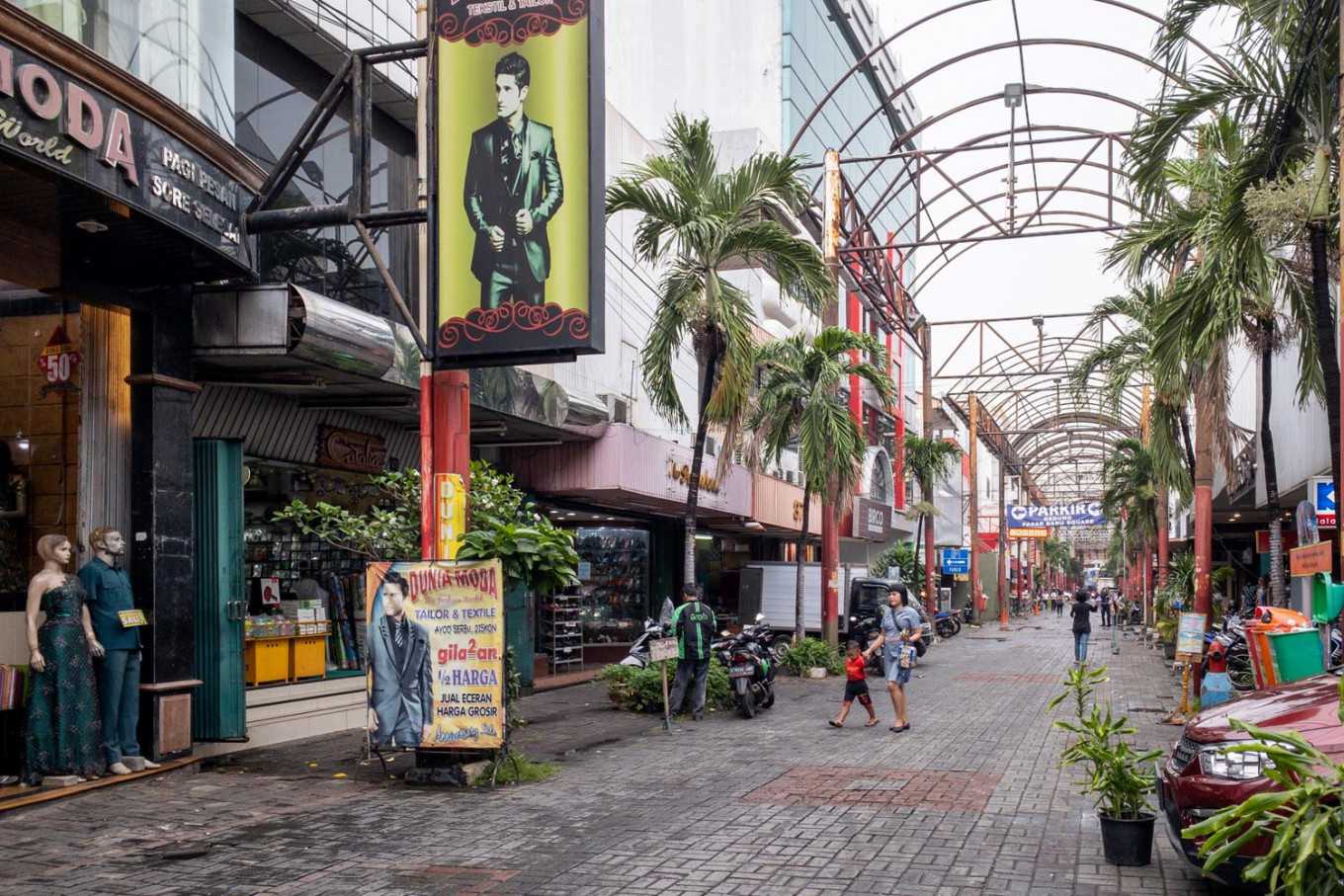Shopping: Changes in consumer behavior force retailers to adapt
22 April, 2020

Consumer habits have rapidly changed since emergency measures were launched in mid-March to decelerate the spread of COVID-19, prompting retailers to introduce new ways to build relationships their customers.
Roy Mandey, chairman of the Indonesian Retailers Association (Aprindo), said in Jakarta on April 16 that most of the association’s members saw a fourfold upsurge in transactions using apps or other delivery services as visits to physical outlets dropped.
“The changing customer behavior is, of course, directly impacting our modern retailers,” Roy said, noting that transactions had plunged by 80 to 85 percent at nonfood retailers and by 30 to 40 percent at food retailers since the large-scale social restrictions (PSBB) policy was imposed on April 10.
In response to the changing behavior, Roy continued to say, the larger retailers increased hires or outsourced additional forces to aid their in-house delivery services, whereas smaller retailers chosen partnerships with existing online delivery services.
“Visits to modern retail stores still dominate, but because members of Aprindo now have distribution channels via phone apps, [these] are increasing during this COVID-19 [pandemic],” Roy said, emphasizing that, regardless of the shift to online-based services, nearly all consumers still thought we would shop offline, mostly to ensure the quality of fresh produce they bought.
Aprindo, which groups about 150 local and national retail companies with a complete of around 45,000 outlets across Indonesia, is the largest association of the country’s retailers.
An associate of Aprindo, retail chain Hypermart, recently launched a novelty called the “Park & Pickup” feature. It allows customers to order their groceries via WhatsApp or the Hypermart online store and grab their orders at the parking lot.
“No need to get out of the car, because our staff will deliver the products to the car,” Danny Kojongian, corporate communication director and corporate secretary of PT Matahari Putra Prima, the parent company of Hypermart, said on April 8, as quoted by kompas.com. Payments can be made using electronic payments to promote contactless shopping, although in-cash payment was still available, he noted.
Recent studies have documented similar trends in the shift of consumer behavior, with conclusions suggesting that some consumer preferences formed through the entire pandemic are likely to stay in force even after the health crisis subsides, while other changes are reversible.
According to a written report published by McKinsey & Company this month - titled Reimagining food retail in Asia after COVID-19 - around half of the respondents have switched from their regular grocers during the pandemic, but 98 percent of them plan to return back.
The top three factors for these consumers switching stores are: the new designation is closer to home (60 percent), the previous store has a large amount of out-of-stock items (44 percent) and the consumer’s preferred brands have sold out (32 percent), according to the study.
The analysis also showed that, aside from store location and option of products, cleanliness will be among the most crucial factors for consumers when deciding on a grocer within the next four weeks, as the bar chart below indicates.
Although in-store visits are declining because of the large-scale social restrictions, the analysis suggests that food markets may benefit over time, as more consumers prefer groceries over restaurant dine-ins because of their meal options in “a trend that could linger,” the analysis says.
The same view is presented by a different report published by Mintel, a market intelligence agency. The report, titled How COVID-19 is impacting drink and food markets in Southeast Asia, indicates that “even following the current situation calms down, given the scale of the outbreak, and according to the duration of lockdown measures, the pandemic will probably leave an indelible mark on consumer lifestyles”.
“This presents huge opportunities for grocery retailers to raised build relationships consumers through measures that bring added value and convenience so that you can encourage more consumers to look online now and continue the habit once cautionary measures lift,” Mintel’s Asia Pacific drink and food analyst Tan Heng Hong writes in the report. He pointed to behavior such as for example vigilance around immunity and hygiene, reliance on online grocery shopping and the habit of at-home cooking, as the ones that will stick around.
Tech companies in online delivery services, including for food shopping, have observed a spike in demand in recent weeks.
“We are seeing a corresponding uplift inside our deliveries business such as for example GrabFood, GrabExpress, GrabFresh powered by HappyFresh, GrabMart, etc,” a Grab Indonesia spokesperson told the Post via a written statement on Friday, adding that GrabFresh, Grab’s grocery delivery service, had seen an increase in transactions, especially following the announcement of the recent social restrictions.
Online delivery services, contactless shopping and cashless transactions will be a major theme for future years retail landscape, if it's not one already, with major chain stores already seeing customers choose those services when offered.
Based on data provided by Youtap Indonesia, an e-money service, among its business partners, McDonald Indonesia, saw an increase in noncash transactions because of its drive-thru services since the first week of the pandemic announcement and had now seen a fourfold increase with the common daily transaction value that surged by around 170 percent, according to a press release published on Friday.
Source: www.thejakartapost.com
TAG(s):
